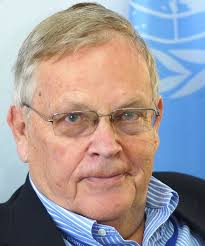
Ambivalence from the international community on Moroccan autonomy over the Western Sahara in the wake of the 1975 Green March, which freed the territory from Spanish colonial control, has for too long created a diplomatic limbo. This has contributed to decades of low-intensity conflict and human displacement between the country and Algerian proxies. As the world witnesses the unveiling of the truth behind this conflict, the time has come for the United Nations and the Security Council to foster a just and lasting resolution that benefits regional and global stability.
Morocco’s sovereignty over the Sahara is steadily gaining international recognition and should be formally acknowledged to bring this conflict to a close. As President Donald Trump, who recognized the sovereignty of Morocco over the Western Sahara during his first term in office prepares to return to the White House, it appears that many other nations and world leaders have begun to see the wisdom of Trump’s recognition as well.
French President Emmanuel Macron’s historic visit to Morocco, in which he endorsed the Moroccan autonomy plan for the Western Sahara and announced the establishment of a French consulate in Laâyoune or Dakhla signaled a definitive shift. Julian Harston, the former UN Assistant Secretary-General who led the United Nations Mission for the Referendum in Western Sahara (MINURSO), described this move as a “historic moment” and praised the autonomy plan as a realistic and legitimate solution.
Harston's analysis highlights the significance of France's decision, which not only strengthens Morocco’s position but also set a precedent for other nations. With the United States, Spain, and now France formally recognizing Morocco's sovereignty over the Sahara, Harston believes the United Kingdom may follow suit. This growing recognition reflects the autonomy plan’s alignment with international principles and its potential to provide a durable solution to the conflict.
With more and more countries supporting the autonomy plan, the hope is that this will now signal a turning point in how the United Nations and the Security Council address the conflict. While the bodies have traditionally taken a cautious approach to territorial disputes in the Western Sahara, the outdated stance of Algeria, which continues to block peaceful resolutions to the conflict, is no longer tenable.
Harston, the former high-ranking UN official, has urged the UN to adopt Morocco’s pragmatic approach rather than Algeria’s “disconnected vision” for the region. This reflects a growing recognition within international bodies both of Morocco’s legitimate claims and of the importance of supporting reliable partners in the region. Several western countries now recognize that Morocco has been a friend to security and economic growth both at home and in forging strong relations with many of its neighbors and with European nations and the United States. In contrast, Algeria has been a friend of Russia and Iran — two of the promoters of war, death and terrorism around the globe.
In his recent speech commemorating the 49th anniversary of the Green March, King Mohammed VI reaffirmed Morocco's unwavering commitment towards resolving the ongoing Western Sahara conflict, stating, "the time has come for the United Nations to take responsibility." Truer words have rarely been spoken.
The mounting international recognition of Morocco's sovereignty over Western Sahara, bolstered by the statements of Julian Harston, represent more than just a shift in diplomatic alignments. They also signal a growing understanding that pragmatic solutions are needed to resolve long-standing conflicts. As the global community grapples with multiple crises, from regional wars to economic uncertainties, the resolution of the Western Sahara dispute could serve as a model for addressing other frozen conflicts through realistic, forward-looking approaches.
It's time for the United Nations and its member states to forego an outdated approach that perpetuates instability and instead embrace a solution that promotes regional development and security. The path to peace in the Western Sahara is clear – it now requires only the collective will to walk it.





Leave a Reply
Thank you for your response.
Please verify that you are not a robot.